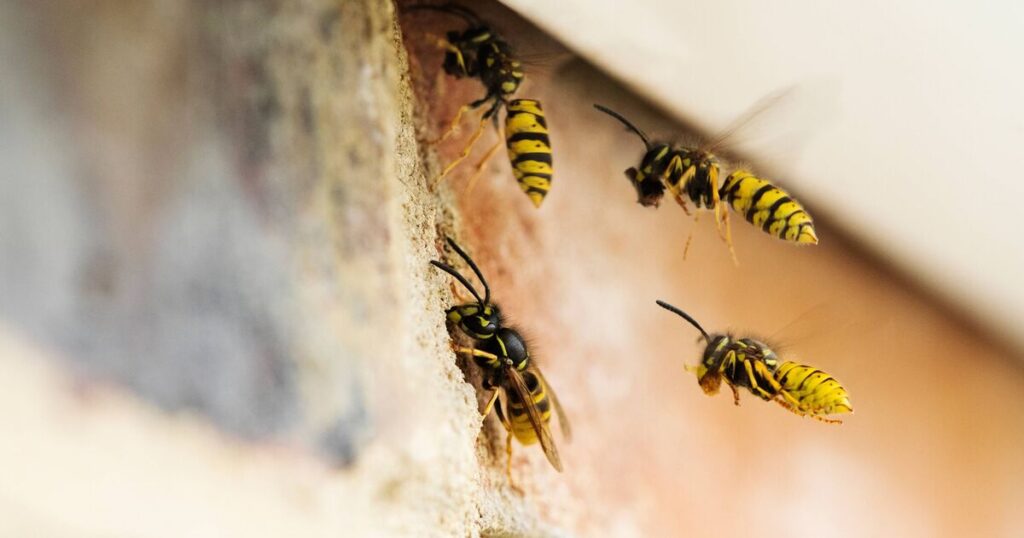
As the UK gets warmer and summer nears, the number of wasps infiltrating our homes is on the increase. Fortunately, a pest control specialist has revealed a simple yet effective method to fend off these pesky intruders.
Wasps and hornets have a hatred for mint – and so sprinkling mint around your property might just be the repellent you need. Clancy Bros Pest Control also suggests using peppermint oil as an alternative.
All you need to do is place a couple of drops of the oil dabbed onto cotton wool – and this should do the trick, they say. In addition, cleaning sensation Chantel Mila has shared her tactic of placing peppermint oil-infused cotton balls under bin liners to ward off insects while also keeping odours at bay.
In addition to this, she suggests hiding them in vacuum cleaners to permeate the house with a minty scent that deters wasps. Mila, who shared the advice with her 1.6 million followers, also noted that she places a mint in jars full of water near windows to block fly entry, and she combats spider invasion by wiping down walls and floors with orange oil as spiders detest its smell, reports Daily Record.
She also highlighted doorways as a critical point of entry for insects. “Dirty door tracks can be a breeding ground for bugs, so wrap a cloth around a blunt knife to clean them easily,” she said.
Wasps detest the smell of cayenne pepper, according to Eliminate Solutions. To create a repellent, mix one teaspoon of pepper with one cup of water and spray it around your home to keep these pests at bay.
Citronella, commonly found in perfumes and soaps, is renowned for its insect-repelling properties, particularly against mosquitos, but it’s also effective in warding off wasps. The pest control firm suggests “burning citronella candles to infuse the outdoor area” as a deterrent.
In addition, keeping homes free of exposed food and drinks is crucial to prevent these insects from venturing indoors. Timothy Wong, a director at MandM Pest Control, shared with the Martha Stewart website that wasps are attracted to carbohydrates found in fruits, sugary drinks, and sweets, which explains their presence near picnic areas, rubbish bins, and inside homes.
Brightly bloomed flowers and their enticing aromas act as magnets for wasps, adding to their uninvited presence alongside their attraction to light and warmth. Wong said: “Many species have a life cycle where they seek out protected nesting sites to overwinter, then re-emerge during the spring to build new nests.”
With wasp season commencing in April, their incessant buzzing becomes a commonplace annoyance, particularly when trying to relax outside.
While a wasp sting is a painful irritant for most, it can trigger a potentially fatal anaphylactic reaction in those with allergies.
The threat of infestation is another concern. If wasps choose to construct a nest in your home or garden, their population can quickly escalate, and professional pest control removal could set you back as much as £200.
 Latest World Breaking News Online News Portal
Latest World Breaking News Online News Portal






